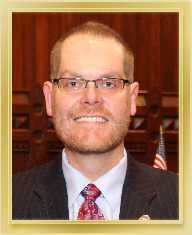
STATE REPRESENTATIVE
Jeff Currey

Serving the 11th Assembly District
East Hartford, Manchester, South Windsor
Legislative Office Building, Room 4010
Hartford, CT 06106-1591
Capitol: 800-842-8267
Jeff.Currey@cga.ct.gov
College Affordability
Student loan debt is an issue that impacts many Connecticut families. Sixty-four percent of college graduates in our state have student loan debt. This year, Connecticut became the first state in the nation to create a Student Loan Bill of Rights, which establishes an Office of the Student Loan Ombudsman. This office will: regulate student loan servicers, compile data on borrower complaints, develop a financial literacy education course for students, and will help student borrowers and their parents navigate the loan process.
Students can also take advantage of the Connecticut Higher Education Supplemental Loan Authority’s (CHESLA) lowest interest rate yet. CHESLA has announced that it will offer its lowest-ever fixed interest rate at 4.95 percent, down from its current rate of 6.75 percent. This rate is also significantly lower than the upcoming Federal PLUS loan rate of 6.84 percent.
In addition, we passed a law that will help address the rising cost of college textbooks. This new law establishes a pilot program on the use of open-source textbooks in hopes of increasing their usage in colleges across the state. Open-source textbooks are licensed, college-level textbooks made available for FREE on the Internet to students, faculty, and the public.
Affordable and Reliable Energy
We need to continue to procure affordable and reliable energy in accordance with our renewable energy goals. This year we allowed the Department of Energy and Environmental Protection (DEEP) commissioner to solicit long-term contracts for various energy resources, including: wind, solar, biogas, fuel cells, waste heat recovery, and natural gas, among others. The DEEP commissioner may select one or more suitable proposals and direct the electric companies to enter into long-term contracts. Agreements are subject to the Public Utilities Regulatory Authority’s (PURA) approval. The bill limits all contract terms to 20 years and puts other limitations on the size and scope of proposals.
Addressing the Achievement Gap
This year, we worked to help Connecticut close the achievement gap and improve educational outcomes for all students. We will increase early childhood literacy programs by requiring the State Department of Education to hire a Director of Reading Initiatives who is charged with implementing a statewide reading plan and coordinating Connecticut’s various reading programs. In addition, more teachers will be certified in shortage areas, more minority teachers will be recruited, and educators will be given new strategies to build better relationships with students of different cultures. We also created a pilot program in four towns and cities to identify best practices for English Language Learners (ELL) instruction and will develop standards for students receiving longer periods of specialized instruction.
Assisting Consumers in Making
Informed Health Care Decisions
This year, we responded to increasingly complex healthcare options and rising out-of-pocket costs by improving consumers’ access to information needed for informed choices. The health insurance exchange has been directed to establish a consumer website with cost and quality information. In addition, health providers will be required to notify the patient of the charges for scheduled procedures when they are uninsured or out of network. Insurers are now required to lower their rates if emergency services are provided by an out-of-network doctor at an in-network facility. In addition, facility fees at hospital-owned medical practices have been banned or reduced, and patient notice of these fees has been improved. Finally, secure access to electronic health records will be improved to help coordinate care and reduce duplication of services.
Veterans
This year, the legislature supported and advanced legislation that recognizes the important sacrifices that Veterans have made while defending our country. Here is a look at some of the legislation we passed this year to help our Veterans:
Increasing Services Available to Veterans on State College and University Campuses. Operation Academic Support for Incoming Service (OASIS) helps members of the Armed Services receive grants and scholarships to purchase necessary school supplies when enrolling in educational programs. A new law asks for a study of how our colleges could implement the best services and practices into the OASIS program.
Establishing the Connecticut Women Veterans’ Program. The Department of Veterans’ Affairs will now be required to conduct benefits and services outreach for female veterans, and offer recommendations to the legislature on what types of service initiatives would be best for female veterans. It is critically important that we protect those who protect us and this legislation is a good way to honor these brave women.
Ensuring Vets have Housing. Since 1940, the Veterans’ Home in Rocky Hill has served our vets in need with a range of rehabilitative, medical, and vocational services. Over the years, though, the Veterans’ Home has fallen into disrepair. A new law implements several recommendations from a 2014 study on the Home including:
- Residents will have two seats on the Board of Trustees.
- A process will be developed for residents to file complaints.
- No veteran will go without housing should something happen to the Home.
- The General Assembly will be presented with a plan to implement other recommendations– including more transitional housing, on-campus work programs, and greater privacy for residents.
